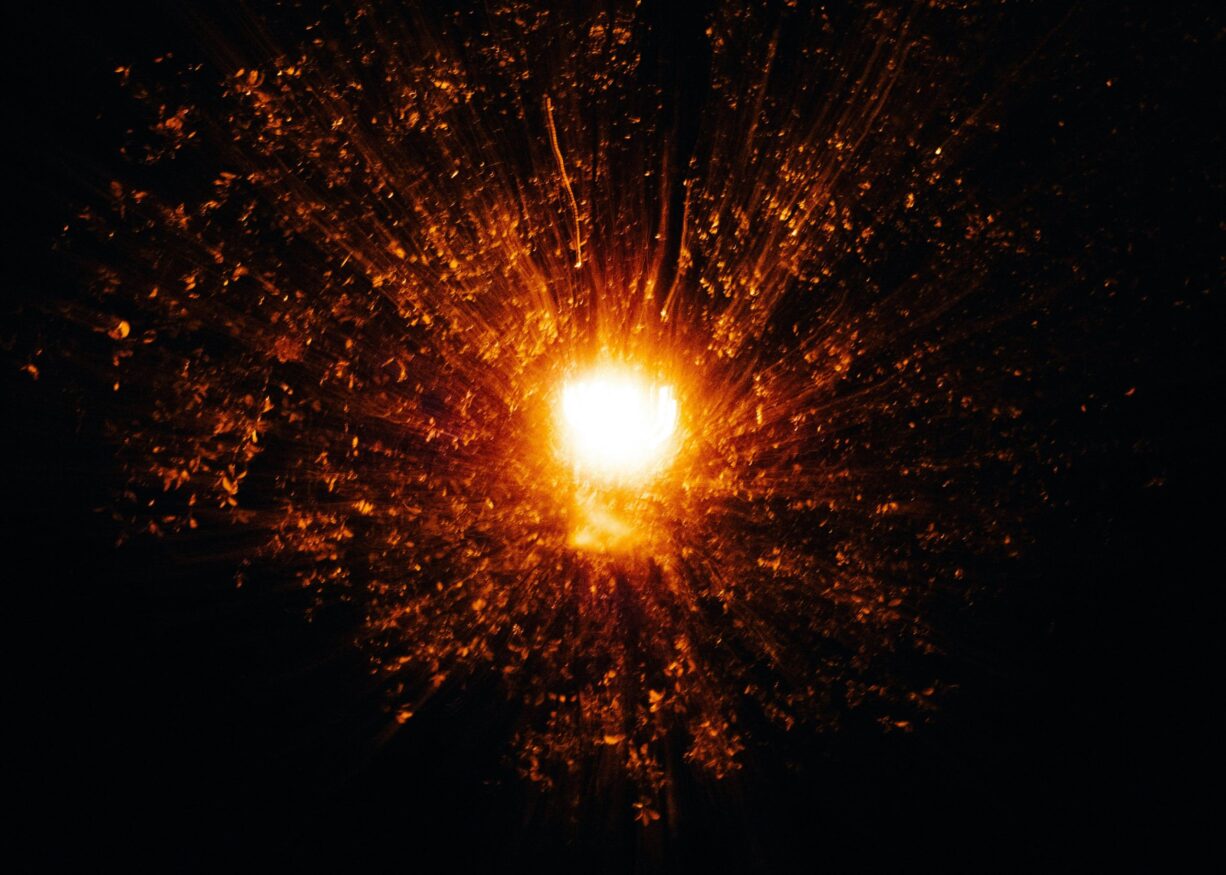
MY GRANDMOTHER, THE DOG, THE FRENCHMAN, THE HEAT DEATH OF THE UNIVERSE, AND ME
Li Sian Goh | Flash Fiction
When I was sixteen, and my grandmother seventy-six, she caught a bad cold, which turned into pneumonia, and died. At the funeral, which was filled with countless offspring, relatives, and offspring of relatives, my oldest cousin, who was weeping very hard indeed, got up to speak. She spoke about how our grandmother had gotten along so very well with the family dog. Then she spoke about what our grandmother had been like as a parent and grandparent. A funny look of uncertainty crossed her face. “She wasn’t the most attentive mother,” my cousin said, “but we all loved her anyway!”
Even at the age of sixteen I knew what she was talking about. My mother would never stop seething, would never let my sister or I forget it in a furious rush of overprotective love, an attempt to correct where she thought her mother had gone all wrong. My grandmother, who had been married at the same age I was at her passing, was known as a fervent neglecter of her own five children, forever and always running back to her parents’ house to clean and scrub, to cook for and dote on her younger siblings rather than her own growing brood.
Somewhere, in between getting married and having her first child, the occupation. We didn’t talk about the occupation. The occupation ended, we were liberated from the Japanese, we gained independence from the British, the country became the safe, prosperous and rather ponderous country I was born into. The roads were built wide and smooth, new flats sprung up, people earned university degrees, they went on holidays to the country of their former occupier, we consumed our former occupiers’ food and culture. Hello, sushi, hello, sashimi, hello, tempura, Hello Kitty! We were taught the occupation in school, and once a year the school tuckshops served the bland and unpalatable food that people had subsisted on during the occupation, but we didn’t talk about the occupation.
To me, she barely said anything. We didn’t speak the same language. As a small child I thought people lost their English and fell silent as they grew old, that it was in the way of things. We would sit on the couch and watch the television serials, terrible cardboard dramas produced by state-owned media corporations, which were in Mandarin, and a step removed from both the tongues most facile to us; dialect for her, English for me. The dog curled against my grandmother’s lap, avoiding me.
At the funeral, one by one all the speakers rose to deliver their eulogies. One by one it became clear they were all saying variations of the same thing. “She was – well some might say neglectful, but she was our mother and we loved her!” Why, oh why? Not for the first time it occurred to me that the family institution was a rather efficient system for the enforced redistribution of love, or something like it.
At the age of twenty-five, rather unhappily in love with a Frenchman, I told him this story, foolishly thinking it would fill him with an abrupt sort of tenderness. I should have known better. He was extremely suave, and never did anything abruptly.
Instead he laughed at me. “Ma chérie, one day when you’re thirty-five, you’ll see that this is all rather funny. Thirty, if you keep exercising your sense of humor.” Begrudgingly, furiously, I must now admit that this was in fact the case.
As for myself? The affair with the Frenchman lasted much longer than it should have, and what with one thing and another – nursing my bruised heart, coming seriously to a career, rising sea levels, drone warfare and the heat death of the universe – I never got around to having a child, much less five.
As for my grandmother? After the speeches were over, my aunts’ sobbing reached a crescendo, my mother ground her teeth at them furiously, the coffin was slid into the cremator, and whoosh, there she wasn’t, cremated and gone.
As for the dog? That’s a trick question. It passed away years before my grandmother died, and subject to one’s beliefs about the afterlife one might presume they are sharing it rather peacefully together.
Li Sian Goh is a writer and researcher. Born and raised in Singapore, she now lives in New York, where she is at work on a novel and a short story collection. Her fiction has been featured in several publications, amongst them Joyland Magazine, The Offing, and No Tokens.
